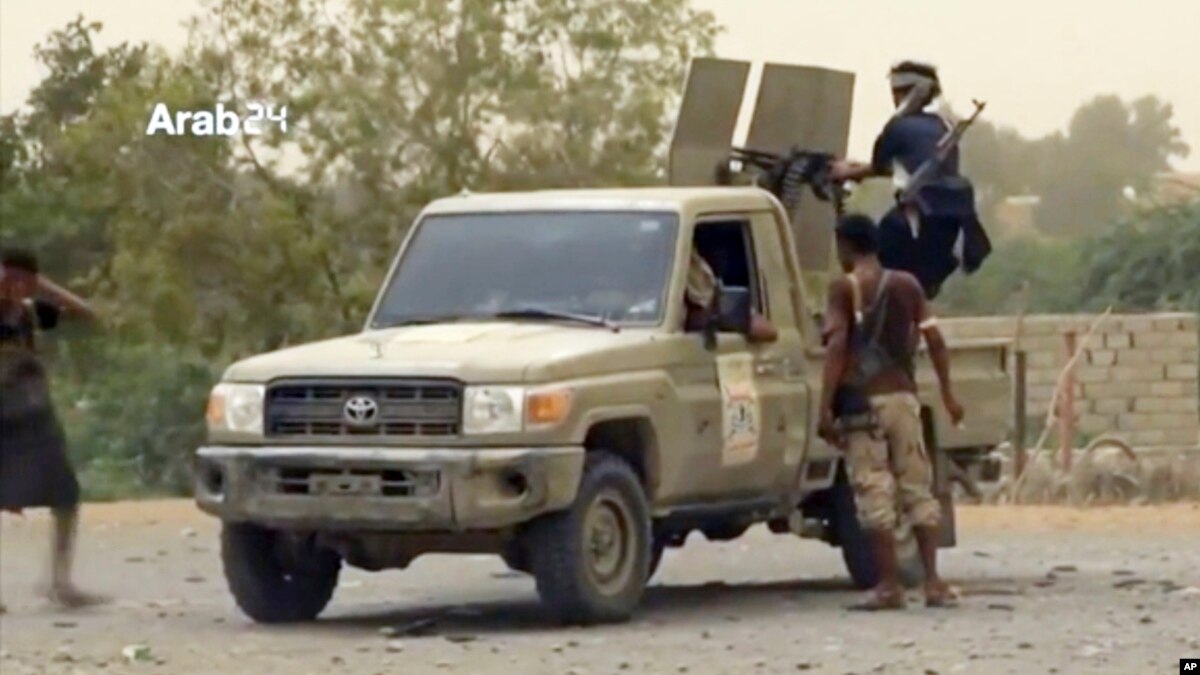
Aid officials in Yemen say residents who have left the key port city of Hodeida to spend the Eid al-Fitr holiday with relatives elsewhere might not return, since Saudi-led forces have entered the city.
The Norwegian Refugee Council said Saturday that Muslim residents who did not leave the city had been frightened to follow holiday customs of attending mosques or visiting friends and family. In a statement, the NRC said many were afraid to move too far from their homes because of the fighting.
The group's coordinator for Hodeida, Saleem Al-Shamiri, said in a statement: "People feel more tension with each day that passes. ... Eid should be a peaceful and happy time for us to spend with our families, not a period of waiting to know whether your house will be hit when fighting reaches the city."
Hodeida is an important and strategic location since it is the entry point for humanitarian aid, including food.
On Thursday, the U.N. Security Council called on the warring factions in Yemen to keep Hodeida open, as humanitarians tried to deliver critical assistance to about 600,000 civilians in the city.
The NRC said humanitarian supplies were positioned at nine service points across the city, but unpredictable areas of fighting and lack of safe passage were keeping the supplies from being delivered. In the south of the city, where fighting has taken place, medical care and supplies are most likely needed, but the group said it could not access the area because of the violence.
The media office of the Yemeni military said the allied Arab forces gained access to the airport Saturday, the fourth day of the coalition's campaign to retake Hodeida from the Houthi rebels.
The Saudi-led coalition began airstrikes on Hodeida early Wednesday, after what the United Arab Emirates, a coalition partner, said was the passage of a deadline for Iranian-backed Houthi rebels to surrender the critical Red Sea port.
Hodeida is a lifeline for the poverty-stricken country, which imports 90 percent of its food, fuel and medicine, 70 percent of which come through the city's port. The Houthis have controlled Hodeida for two years.
Saudi Arabia began bombing Houthi rebels in support of the Yemeni government in March 2015. Since then, the U.N. estimates more than 10,000 people have been killed, mostly in airstrikes.
No comments:
Post a Comment